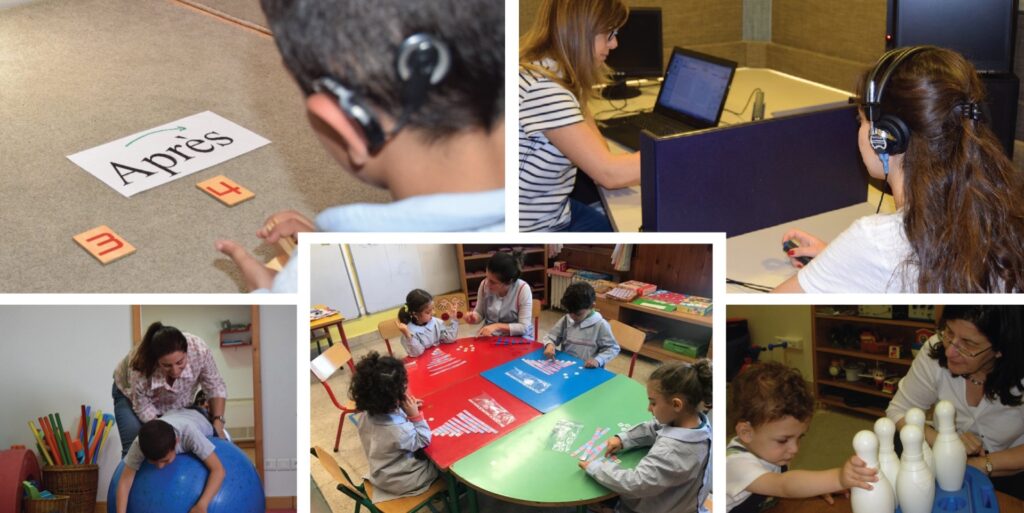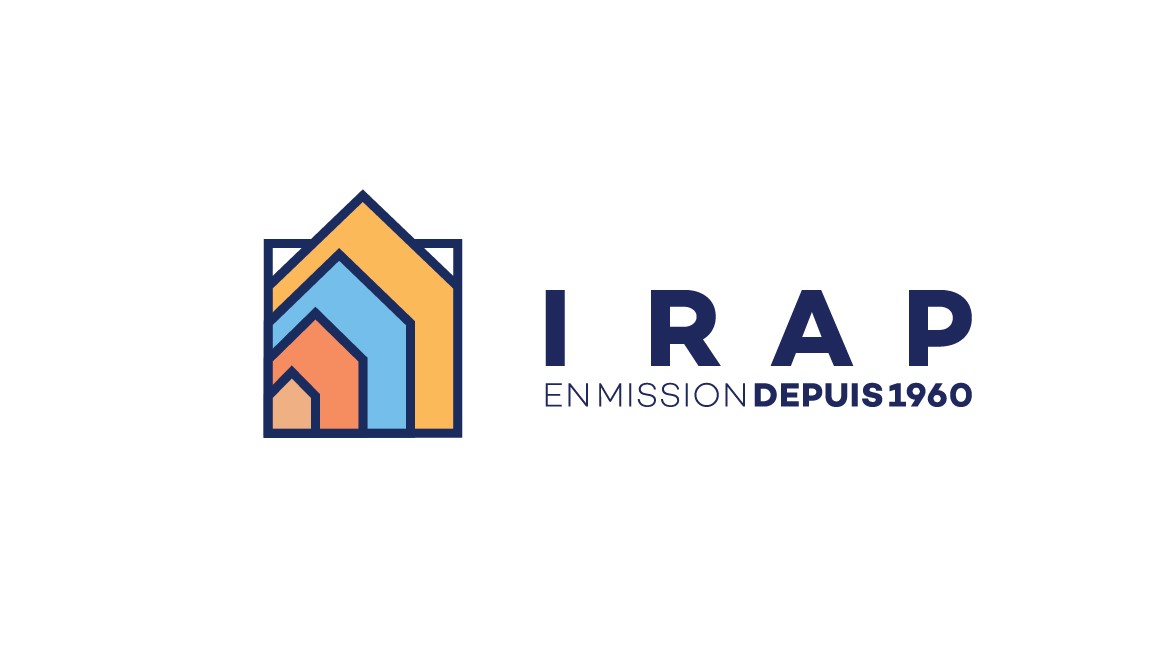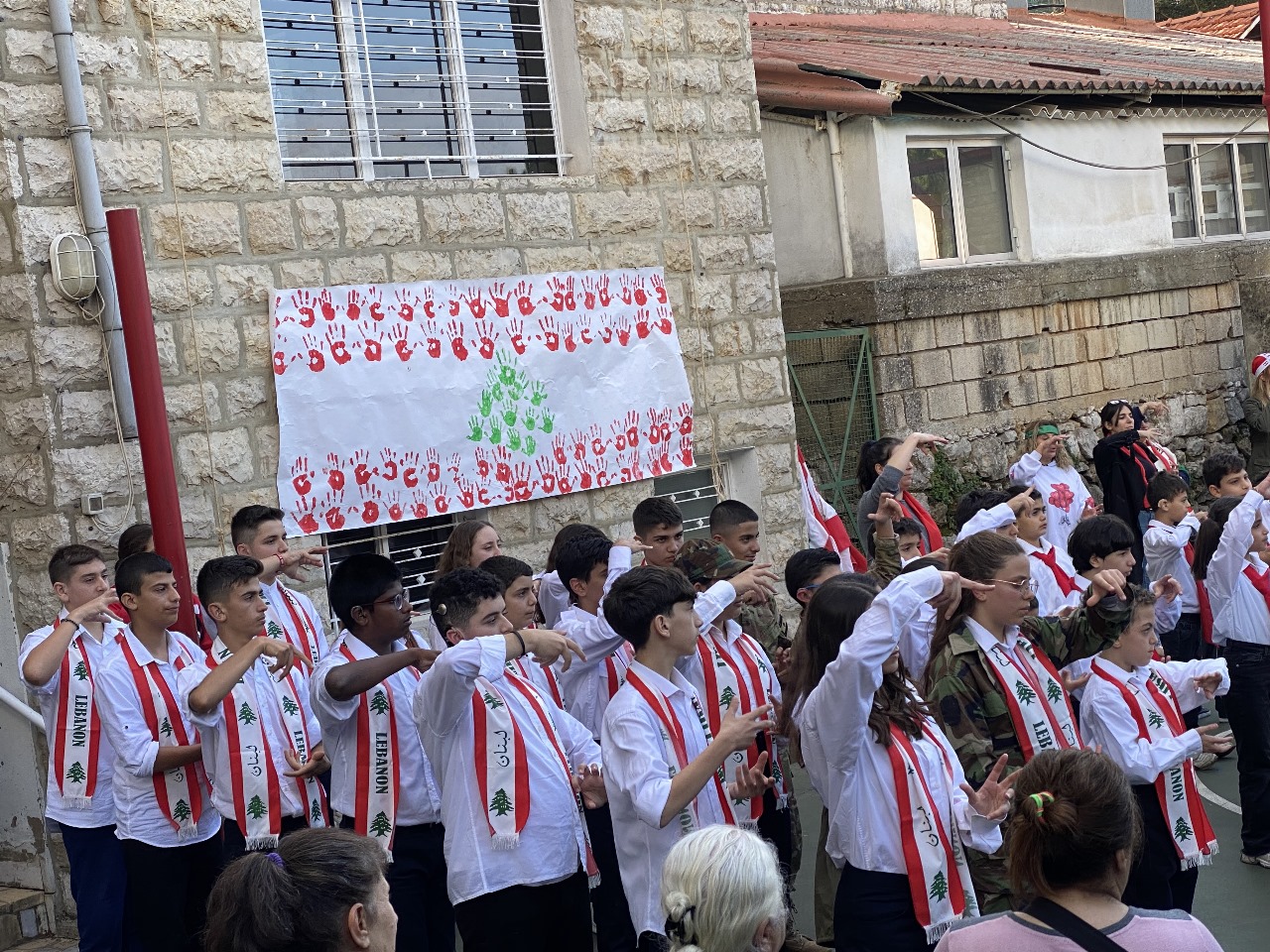Lebanon, inclusion in times of war: ‘Our challenge is to be an oasis of peace’

In conflict-torn Lebanon, the Institut de Rééducation Audio Phonétique (IRAP) offers education, inclusion and comprehensive support to deaf children and displaced families, promoting the values of non-discrimination, universal fraternity and peace.
There is a specialized school for children, from early childhood to the last year of junior high school; classes are offered in Arabic and French, along with courses in English and sign language. Additionally, there are rehabilitation and psychomotor sessions, psychological support, and sports and dance lessons.

Written this way, it could describe any place where, intuitively, people with disabilities can find support. However, nothing is as it seems in life, and indeed, this is a special and significant place given its context: Lebanon, which has been suffering from years of war and ongoing tensions, worsened by the recent conflict that has deteriorated the population’s living conditions, both in terms of available economic resources and social trust in a possible “us”.
Yet, even in such a complex and difficult situation, there are stories that continue to affirm that, even in the good, “we are unique pieces,” but never alone.
This is evidenced by the Institut de Rééducation Audio Phonétique (IRAP), a Lebanese non-profit organization that also serves as a day center; for 65 years, it has specialized in education and teaching for deaf children and adolescents or those with special educational needs, welcoming students of all Christian denominations and various religions from Lebanon and neighboring countries. It is noteworthy that in recent months, 1.2 million people have been displaced in Lebanon due to the war, many of whom have turned to IRAP for support.
Nicole Hélou works as the head of this center: “IRAP strives to ensure the social integration of its students, based on specific values that start from non-discrimination on one side, in a spirit of welcome and sharing that makes this reality also a community of active work and life on the other”.
Beirut and IRAP: some context
Beirut 1960: Lebanon is during being “The Switzerland of the Middle East”, a reference point for trade with Europe, characterized by the peaceful coexistence of various confessions, from Shia and Sunni Muslims to Catholic, Orthodox, and Maronite Christians. Here, a group of friends sensitive to the Ideal of universal fraternity recognizes the need to create spiritual bonds and friendship with people with disabilities. “A center is born, a place of meeting and family life, and in 1962, the idea gradually takes shape to specialize in education for deaf individuals to better serve the community. In 1963, the first class for deaf children is inaugurated”.
Over the years, IRAP evolves, navigating the upheavals in the country: projects for welcoming and supporting displaced families, especially from the south of the country, distance support, and the management of a community development project have come to exist, which are even more relevant today. Nicole continues: “Since mid-September 2024, displaced families have found a home with us, and the children, who have not been to school for over a year, have been integrated into specialized classes and can benefit from significant educational support. The family atmosphere makes their integration easier through a shared life dynamic”.
Life and Activities at IRAP
Daily work is coordinated with the Ministry of Education of the country, but it is not limited to classic classroom education: “At noon, for example, we observe a minute of silence or prayer for peace, the ‘time-out,’ we eat together, clear the tables, wash the dishes, and tidy up in a serene atmosphere where children learn from adults. This is also part of the school program. It is a special opportunity to be together in this spirit of service and family life”.
The calendar also includes cultural, ecological, sports, and peace education activities, where play is an important part, allowing displaced children to express themselves, overcome fear, and communicate without words. The families of deaf students are partners in providing educational support to their children; today this collaboration is a challenge: with the economic crisis and the war, families struggle to make ends meet, and their concern is daily survival. In this aspect, IRAP seeks to be present, to listen and provide concrete help for the whole family through food packages, medicines, and job searches, demonstrating fraternity and openness while respecting diversity.
It is certainly a daunting challenge, but also rich with opportunities for good: there is a theme, almost summarized as a slogan, chosen each year, making each year different, which helps highlight the possible path: “This year’s motto is ‘I also do my part,’” continues Nicole. “In this difficult context of war, it is evident to all of us that if each of us does our part, we will be able to create an oasis of peace, reconciliation, and fraternal life. We have understood that this is the message we need this year. Each of us can do our part, no matter how small, in our daily lives. We just need to believe in it and be persistent. If we are many, we are sure to make it”.

